Key takeaways
- Podcasts enable immersive learning by bringing diverse voices and personal stories to complex topics, making them relatable and memorable.
- They offer flexibility for learning in daily life and foster emotional connections that enhance retention compared to traditional methods.
- Utilizing activist teacher resources helps transform education by integrating real-world struggles into lessons, promoting empathy and critical thinking.
- Effective podcasts for activism should feature authentic voices and provide actionable insights, enhancing both personal engagement and community impact.
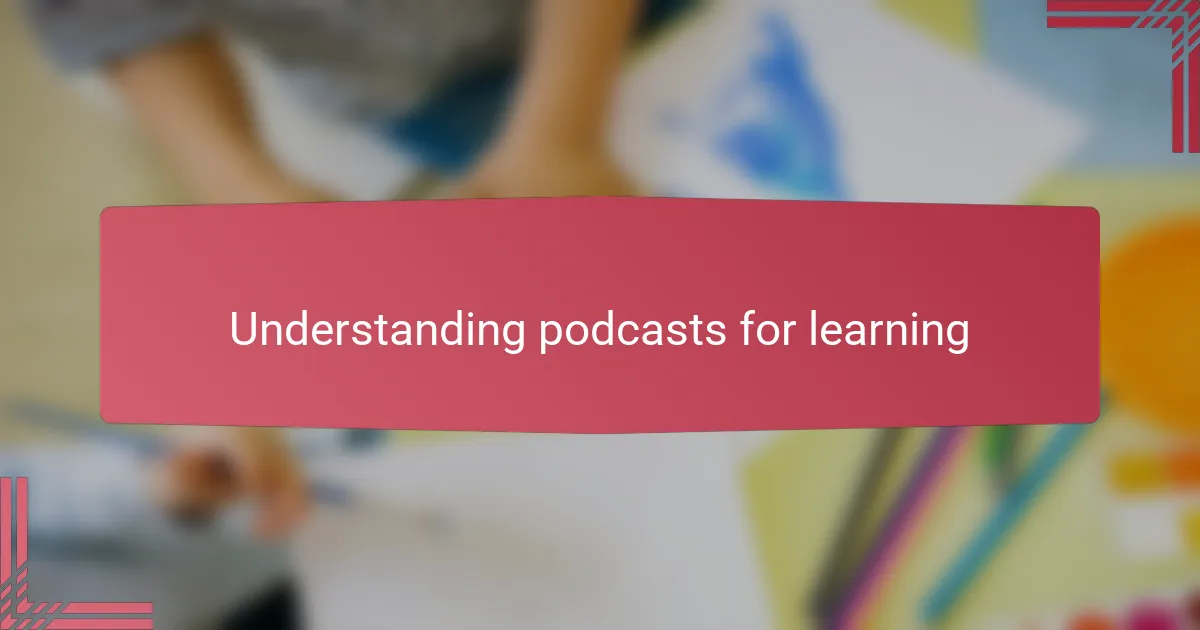
Understanding podcasts for learning
Podcasts offer a unique way to absorb information that feels less like formal learning and more like a conversation with a friend. When I first started using podcasts to deepen my understanding of social justice topics, I noticed how the storytelling format made complex ideas more relatable and easier to remember. Have you ever found yourself more engaged listening to someone’s personal experience than reading a textbook? That’s the power podcasts have—they bring voices and perspectives to life in a way that feels immediate and human.
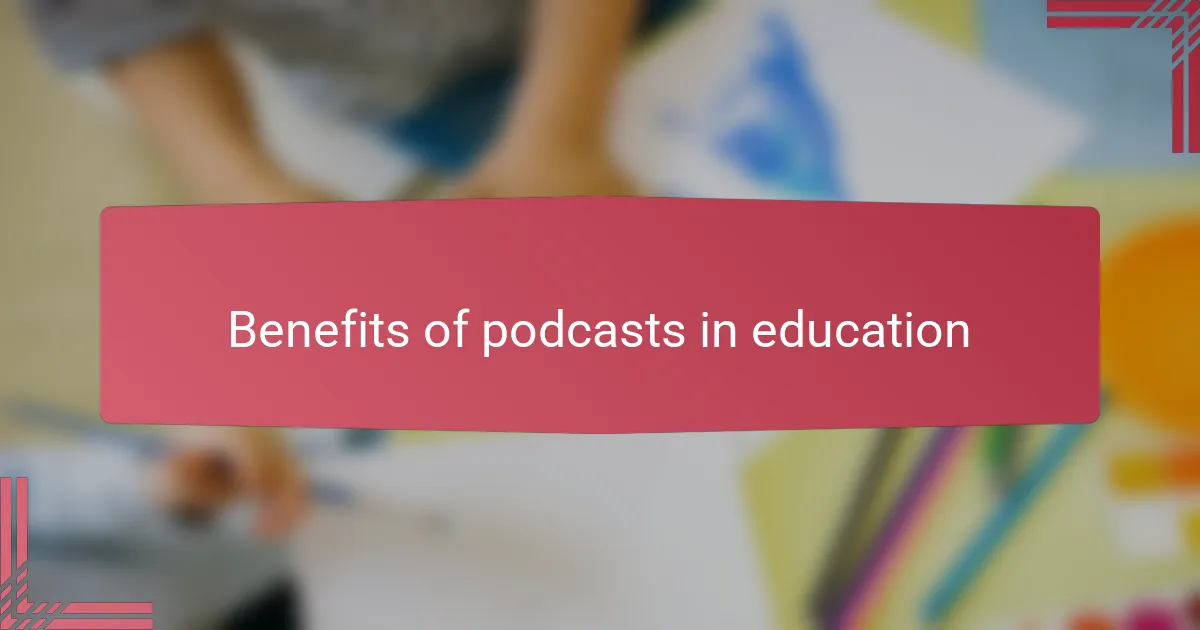
Benefits of podcasts in education
One of the biggest benefits I’ve found with podcasts in education is their incredible flexibility. I can listen while walking, cooking, or even stuck in traffic, turning otherwise “dead” moments into valuable learning time. Isn’t it amazing how something as simple as pressing play can transform everyday routines into opportunities for growth?
Podcasts also create a genuine sense of connection. When I hear educators and activists share their stories and struggles in their own voices, it feels like a private conversation. That emotional connection makes the learning stick much better than just reading facts on a page.
Another thing I appreciate is how podcasts expose me to diverse perspectives that textbooks often miss. They bring in voices from communities directly affected by social issues, offering insights that challenge and expand my understanding. Doesn’t learning become so much richer when we hear directly from those living the experience?
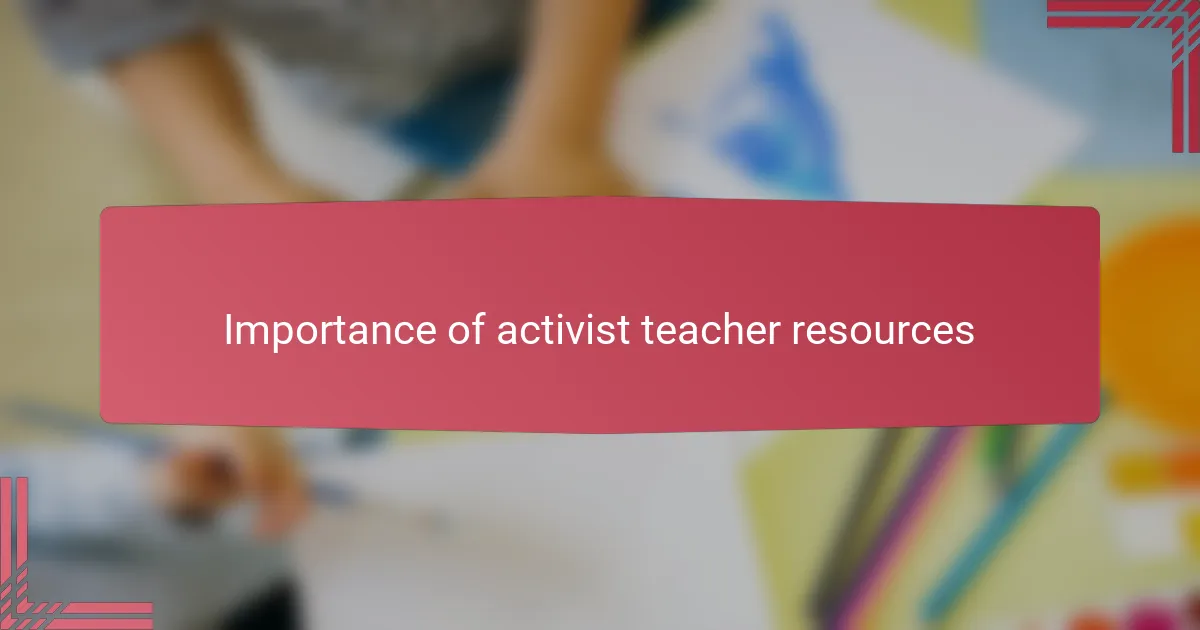
Importance of activist teacher resources
Activist teacher resources are vital because they provide tools that go beyond traditional curricula, helping educators connect with social justice issues in meaningful ways. From my experience, having access to materials that reflect real-world struggles makes teaching more purposeful and sparks genuine conversations in the classroom. Isn’t it frustrating when lessons feel disconnected from what students actually see and experience?
I remember feeling overwhelmed before I discovered these resources—they gave me a clear path to integrate activism into my teaching without feeling lost or unprepared. That sense of support changed everything for me. When teachers are equipped with thoughtful, actionable resources, they gain confidence to inspire change, which ultimately affects not just their students, but communities as well.
What strikes me most is how these resources build a bridge between passion and practice. They aren’t just about information; they nurture empathy and critical thinking, turning learners into agents of change. Isn’t that exactly what education should strive for?
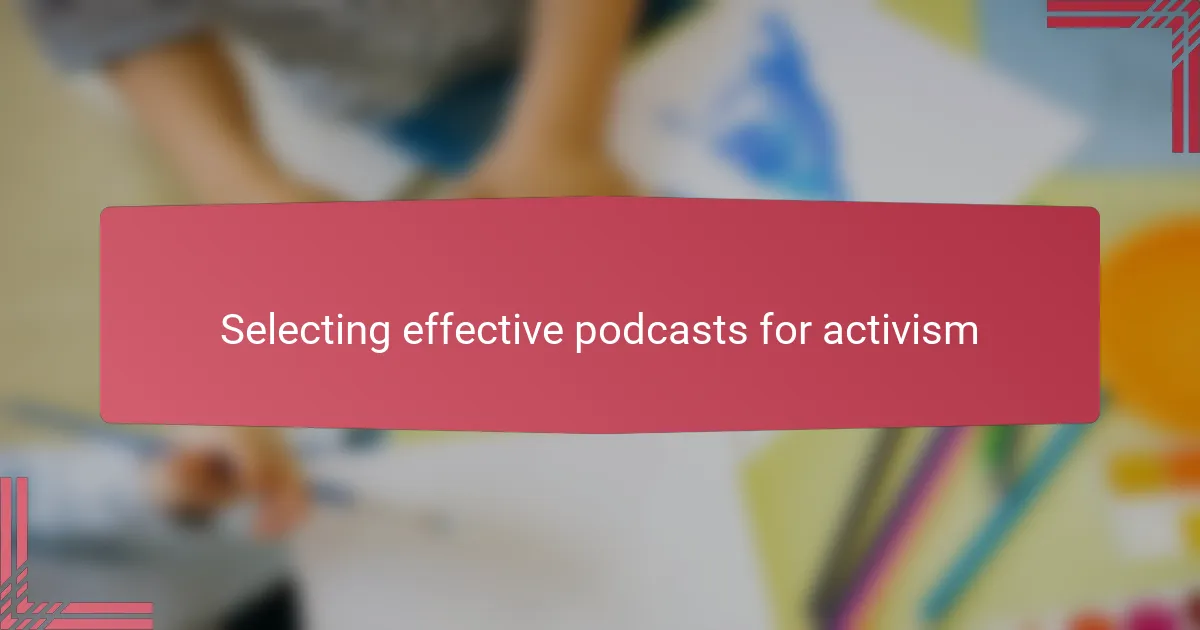
Selecting effective podcasts for activism
Choosing the right podcasts for activism isn’t just about finding popular shows; it’s about seeking out voices that resonate with your values and challenge your thinking. I’ve learned that the podcasts that stick with me are those that don’t shy away from difficult conversations or uncomfortable truths. Have you ever felt energized after hearing someone speak so honestly about injustice that it stirred something inside you? That’s the kind of impact I look for.
What I also find essential is the credibility and background of the hosts or guests. When activists and educators with lived experience lead the conversations, it adds a layer of authenticity that textbooks or secondhand reports simply can’t match. I tend to check their track records or affiliations because a well-informed perspective makes all the difference in respecting the complexity of social issues.
Sometimes, I pick podcasts based on how practical their content feels—do they offer tangible actions, teachable moments, or strategies I can bring into my classroom or community? Listening becomes empowering when it goes beyond awareness to actual change. Have you noticed how some episodes leave you buzzing with ideas to try out immediately? That’s the kind of podcast that fuels activism for me.
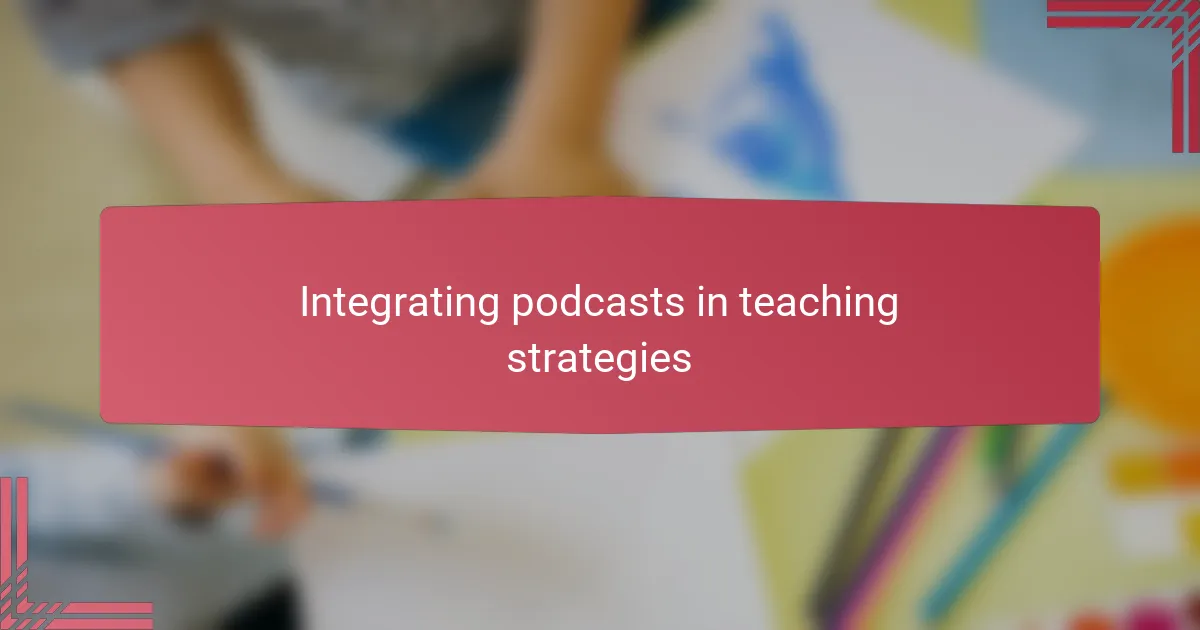
Integrating podcasts in teaching strategies
Integrating podcasts into my teaching strategies has been a game-changer because they create space for students to hear real voices discussing real issues. I often wonder, how can we foster deeper empathy without exposing learners to diverse, authentic stories? Podcasts answer that by making activism personal and accessible.
I remember using a podcast episode as a springboard for class discussions, and the energy it sparked was unlike any textbook lesson. The students were not just absorbing information—they were connecting emotionally, questioning assumptions, and even sharing their own experiences. Doesn’t that kind of engagement make teaching feel truly impactful?
What I find especially powerful is how podcasts fit seamlessly into various teaching formats—whether as homework, classroom prompts, or reflective listening assignments. Incorporating them requires little prep but yields rich conversations. Have you tried assigning a podcast and then asking students to respond in their own words? The results often surprise me with how thoughtfully they reflect.
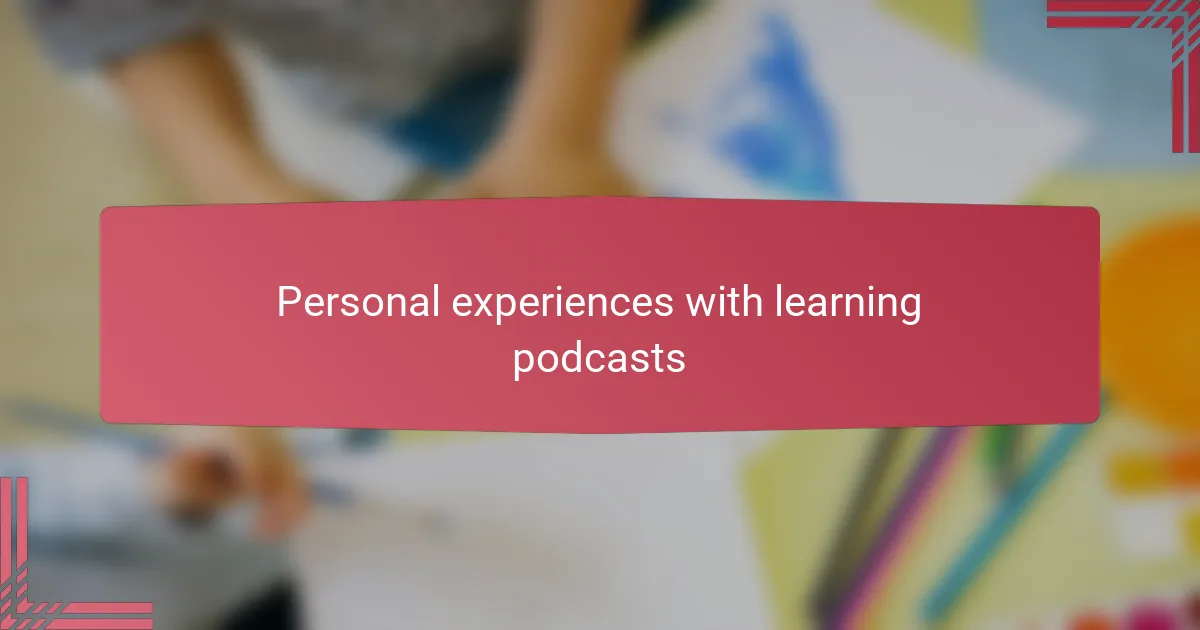
Personal experiences with learning podcasts
Listening to learning podcasts has become one of my favorite ways to stay informed and inspired. I recall a moment when a story from a podcast about grassroots activism moved me so deeply that it reshaped how I approached my own teaching. Have you ever been so captivated by a voice through your headphones that it felt like a personal conversation? That’s exactly what happened to me—it made learning feel intimate and urgent.
There was a time when I struggled to find materials that sparked both my interest and my passion for justice. Then, I discovered podcasts where educators and activists shared their journeys with honesty and vulnerability. Hearing these real-life experiences gave me a newfound motivation and reminded me why I started this work in the first place. Doesn’t hearing someone’s story firsthand add so much more meaning than just facts on a page?
Sometimes, I listen to podcasts during quiet moments—walking in the park or doing chores. These small windows turned into precious opportunities for reflection and growth. One episode particularly challenged my assumptions and prompted me to rethink how I engage my students around tough topics. Have you noticed how a single podcast episode can linger in your mind and influence your actions long after it’s over? For me, these moments have been invaluable.